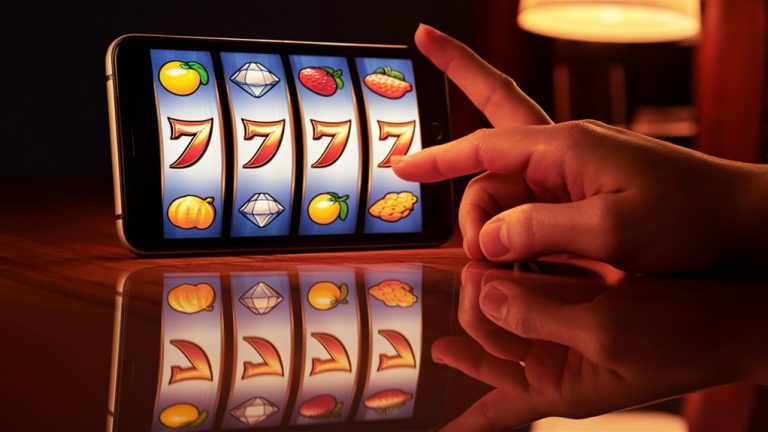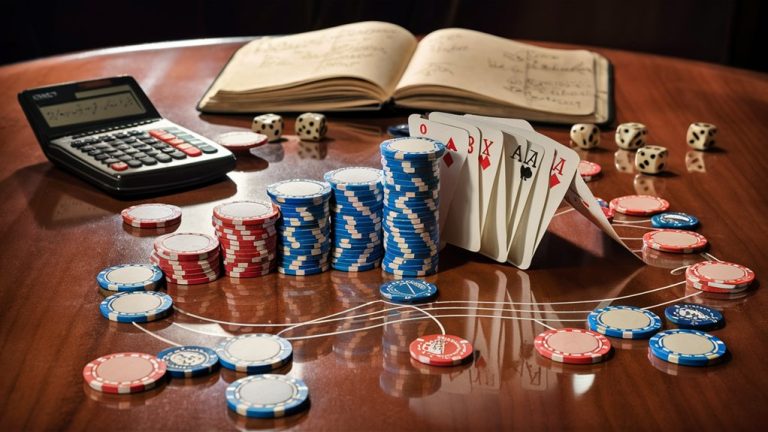
Simple Poker Tips That Work

Key Skills for Winning at Poker
Getting good at basic poker means getting good at five main skills that the best players have. These key poker skills are the base of a good game plan.
Smart Money Control
Tight control of your funds acts like a safety net, keeping your money safe and making sure you can keep playing long-term. Set firm rules and keep poker money separate to stay strong during hard times. 공식 검증 방법 보기
Better Player Insight
Getting better at seeing small signs helps you see what others are hiding. Watch how your foes bet—the timing, the amount, and how often—to make smart choices.
The Power of Position
Being in a good spot at the table is a big deal in poker. Playing later lets you know more and take control, while playing early means you need to be more careful after the flop.
Math Skills
Knowing your numbers, like pot odds and equity, lets you make sharp choices. These math skills help you figure out how much to bet or call at any point in the game.
Keeping Your Cool
Staying calm stops tilt and keeps you playing your best. Use methods like meditation and set rules for your mind to stay sharp and make good decisions. Betting Apps in 2025
How to Get Better
Put time into learning these five areas and keep track of how you’re doing. This planned way of getting better will up your poker skills and help you win more.
Handle Your Money Wisely
Basic Rules for Money Control
Good money control is key for lasting poker success. Follow these tested rules:
- Keep cash game stakes at 5% of total funds
- Keep tournament buys under 2% of all money
- Stay at least 20 buys deep for cash games
- Have 50 buys ready for tournament play
Track and Manage Your Sessions
Careful record keeping lets you get better and play smart. Put these vital rules in place:
- Stop playing when you lose 20% of your buy-in
- Set clear goals for wins and profits
- Write down how each game goes down and what happens
- Stop the session when you’ve doubled your starting money
What You Need for Each Game Type
Cash Games
- Starting low stakes, 30 buys suggested
- Moving up in stakes, at least 25 buys needed
- High stake games, 20 buys for those with experience
Tournaments
- Multi-table events, 50+ buys
- Sit-and-Go games, at least 40 buys
- Big swing events: 75+ buys suggested
Shift risk plans based on:
- Your skill level
- Game type changes
- How bold your play style is
- How much risk you can take
Smart money control shields you from bad times while letting you grow.
See What They’re Not Saying
Read Poker Players’ Body Talk: Full Guide
Getting What Their Bodies Say
Reading body signs is a big poker skill.
By seeing key body clues, you can tell how strong their hands are and how sure they feel.
Key Body Signs to Watch
How They Breathe
Changes in breathing often show how they feel. Look for:
- Fast breaths mean excitement and strong hands
- Holding breath shows nerves or doubt
- Easy, steady breaths usually mean they feel okay or don’t care much
How They Handle Chips
Hand moves show key hints:
- Shaking hands show nerves
- Calm chip moves show they feel sure
- Covering cards often means good hands
Looking and Faces
Eye and face tells often give away hand strength:
- Strong, long looks show they feel sure
- Looking away might mean they are bluffing
- Small face twitches show stress
Deep Body Talk Analysis
How They Sit
Body sits show their mind state:
- Neck tight? They’re stressed
- Quick sitting changes show mood swings
- Stiff sitting often means they’re not sure or comfy
They Act Out of Habit
They change their normal way, upping your insight:
- Voice changes
- Not following their usual bet rhythm
- Odd timing in choices
How to Use Body Talk
Get good by watching certain foes each game.
Build up a deep view of how they behave and look for groups of signs, not just one-off hints.
Spot Is Key
The Big Deal of Poker Spot

Getting the Spot Right
Your table spot is a big part of your game plan and can really change how much you win.
Playing later gives you important info about what others do before you have to act, while playing early means you need to be more careful.
Playing Late Helps
Playing from the last spot (like the dealer spot) gives you the most info and choices. This good spot lets you:
- See clear betting patterns
- Work out pot odds right
- Play more hands well
- Make the last betting move
Choosing Hands by Spot
What hands to start with changes a lot based on your table spot. Think about these spot-based game plans:
Early Spot
- Only the best hands (AA, KK, AK)
- Play safe and tight
- Fewer chances to make money with risky hands
- More risk since you act first
Late Spot
- Suited connectors playable
- Small pairs are better
- More chances to take hands with skill
- More ways to play so-so hands
- Bluffing works better with this edge
Knowing spots is a must-have skill that puts winning players apart from those who just break even.
Using spot-based plans helps you make better choices and boosts long-game wins.
Know Your Pot Odds
Learn the Math of Poker Odds: Full Guide
Basic Pot Odds
Knowing pot odds is key for making bets that could make you win.
Learn to quick-check if taking a bet makes sense based on the pot size and your bet to stay ahead.
Figuring Simple Pot Odds
To work out pot odds, figure out what you need to call divided by how much is in the pot after your bet.
If a $20 bet goes into a $100 pot, the total pot is now $120, making the odds 20/120 or 1:6.
Use these odds next to hand equity to see if the bet pays.
Advanced Pot Odds Thinking
Implied odds add to simple odds by thinking about possible winnings later on.
Hands like flush draws hit about 35% of the time. Make bets when odds beat the odds of making your hand.
How to Use Odds
Make it easy by learning usual situations ahead of time.
For flush draw spots, knowing 4:1 pot odds justify a call can help you make fast, smart choices.
Key odds for common hands:
- Flush draws: 4:1
- Open-ended straights: 5:1
- Gutshot straights: 11:1
- High cards: 6:1
This planned way to think about pot odds keeps your plays smart and paying off at the poker table.
Keep Calm
Staying Cool When Stakes Are High
Emotion Smarts
Staying cool is very important, especially in games where a lot is on the line.
Thinking clearly and making sharp choices can fall apart when stress and anger kick in, making knowing how to stay calm a must for doing well often.
Ways to Stay in Check
Set firm rules on stopping before you even start playing can help keep a clear head.
When things get tough, trying deep breaths—like taking three long breaths—can help you focus on now, not what just happened.
Knowing what sets you off helps you make plans to stay calm before things get too hot.
Better Bounce Back
Short breaks during tough times can make a big change in how you see things.
A way to track how you’re doing lets you see patterns and grow over time.
The best don’t just never feel bad—they know how to get back on track fast.
Must-Dos for Getting Back
- Plan before you play
- Watch how you’re feeling while you play
- Write down what makes you tick and how you react
- Step away when things feel too much
- Plan how to get back after a break
This full plan for keeping your cool means doing your be


